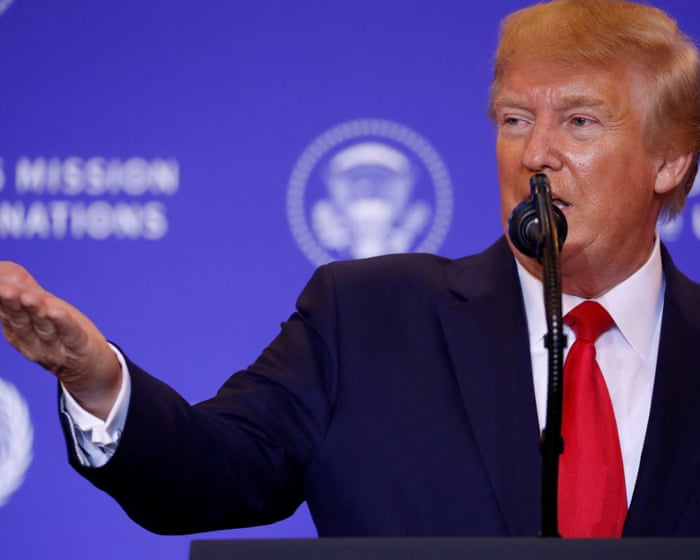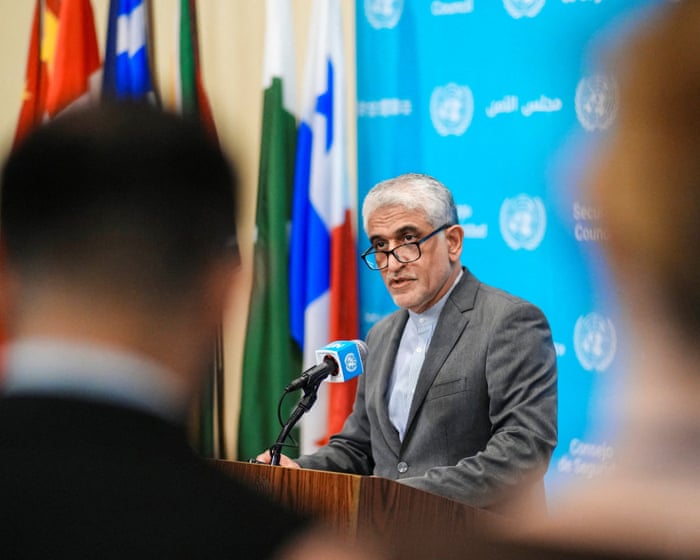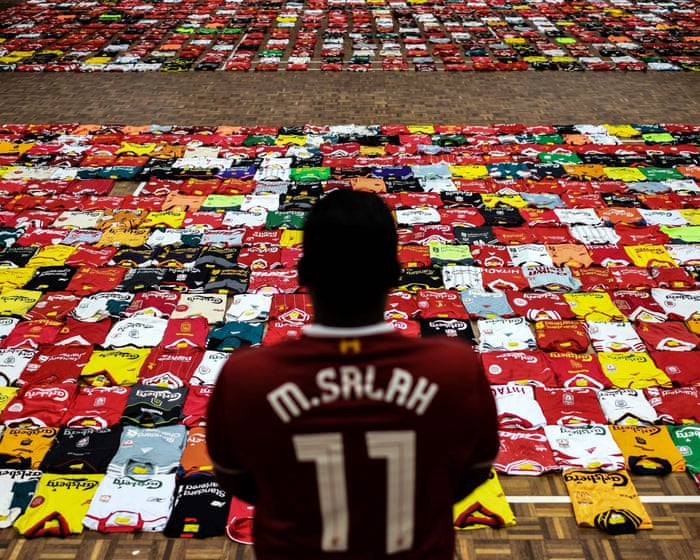Po celou americkou historii nebyli prezidenti hodnoceni podle toho, zda za jejich vlády došlo k násilí, ale podle toho, jak na něj reagovali. Každá krize představuje stejnou zkoušku: využije osoba u moci svého postavení ke stabilizaci národa, nebo prohloubí jeho rozdělení?
Prezidentský slib existuje právě pro takové chvíle. Zavazuje prezidenta k něčemu většímu, než je vlastní zájem nebo stranická loajalita – k Ústavě a právnímu státu. Po smrti pravicového aktivisty Charlieho Kirka Donald Trump tento slib opustil a využil svůj vliv k dalšímu rozdělení již tak rozpolcené země místo aby ji sjednotil. Historie si tento akt politického oportunismu zapamatuje.
Tato výzva není nová. Těsně před občanskou válkou Abraham Lincoln apeloval na „lepší anděly naší povahy“ a zdůraznil ústavní povinnost prezidenta „zachovat, chránit a bránit Ústavu“. Skutečné vedení v takových chvílích znamená proměnit šok v potvrzení rovnosti a zákonného procesu.
Ale ne každý prezident této výzvě dostál. Po Lincolnově atentátu Andrew Johnson využil svou platformu k útokům na členy Kongresu a dokonce oddálil ochranu, kterou Lincoln slíbil dříve zotročeným lidem. Odmítl odsoudit násilí namířené proti černochům a příznivcům rekonstrukce. Jeho konflikt s Kongresem a zanedbávání ústavních povinností vedly k jeho impeachmentu a zanechaly dědictví rozdělení a úpadku.
Toto ponaučení není jen akademické – je naléhavé. Když násilí otřese národem, úkolem prezidenta je hájit pravdu zákona, vyzývat ke klidu a zdůrazňovat, že vina náleží jednotlivcům, nikoli skupinám. Slib je příslibem všem Američanům a vyžaduje, aby prezident mluvil za celou zemi a spravedlivě uplatňoval zákon. Odmítá obviňovat celé komunity za činy jedné osoby nebo využívání zármutku k politickému zisku.
Přesto se v této chvíli prezident rozhodl tragédii zneužít. Tím, že obvinil takzvanou „radikální levici“ z činů jednotlivce, se nejen vyhnul odpovědnosti, ale přímo zesměšnil samotný slib. To, co by mělo sjednocovat, je používáno k rozdělování, což vysílá jasný vzkaz politickým oponentům a zranitelným skupinám: jste nejprve terčem, až potom občany.
V rozhovoru pro NBC News Trump prohlásil, že chce národ uzdravit, ale vzápětí obvinil nejasnou „skupinu šílenců z radikální levice“. Následně vyhrožoval vyšetřováním dárců Demokratické strany v čele s Georgem Sorosem. Tento prezident opakuje své rozdělující taktiky, obviňuje politické oponenty z národních tragédií a znevažuje svůj slib.
Jak ukazuje nedávná historie, existuje i jiná cesta. Po 11. září George W. Bush navštívil mešitu a jasně řekl, že američtí muslimové nejsou nepřátelé, čímž odmítl kolektivní vinu. Po bombovém útoku v Oklahomě Bill Clinton vyzval ke zklidnění rétoriky a varoval před konspiračními teoriemi, které ospravedlňují násilí. Po atentátu na Martina Luthera Kinga Jr. v roce 1968 promluvil Lyndon B. Johnson do zármutku ponořenému národu, vyzval k obnovení závazku k demokracii a spravedlnosti a zdůraznil roli vlády při ochraně občanských práv namísto šíření strachu.
Jak by nyní mělo dodržení slibu vypadat? Znamenalo by to... Musíme začít jasným odsouzením politického násilí a vigilantismu. Toto prohlášení by mělo potvrdit nezávislost vyšetřovatelů a soudů a slíbit spravedlivé uplatňování zákona. Mělo by odmítnout myšlenku kolektivní viny a odmítnout využívání zármutku jako zbraně proti politickým oponentům. Mělo by vyzvat Američany, aby se sjednotili kolem naší Ústavy a řešili naše nejhlubší neshody prostřednictvím zákonů, debaty a voleb – nikoli zastrašováním.
Volba dneška je jasná. Prezident může této chvíli dostát obranou Ústavy a sjednocením národa. Ale tento prezident si zvolil jinou cestu. Apeloval na naše nejhorší pudy, ne na naši lepší stránku. Obvinil celou skupinu – takzvanou „radikální levici“ – z činů jediného člověka, ačkoli motivy násilného činu této osoby jsou stále nejasné. Místo aby odpověděl na volání Ústavy, zaměřil se na své nepřátele a očerňoval své oponenty. Historie si ho zapamatuje ne jako Lincolna, který svůj slib ctí, ale jako Johnsona, který jej zesměšňoval.
Corey Brettschneider je profesorem politologie na Brownově univerzitě. Spolumoderuje podcast Přísaha a úřad a je autorem knihy Prezidenti a lid: Pět vůdců, kteří ohrozili demokracii, a občané, kteří bojovali za její obranu.
Často kladené otázky
Samozřejmě Zde je seznam ČKD na základě tvrzení, že Trump nedostál povinnostem svého úřadu. Dějiny jej odsoudí. Corey Brettschneider
Otázky pro začátečníky
Otázka: Co znamená dostát povinnostem úřadu prezidenta?
Odpověď: Znamená to věrně vykonávat zákony země, chránit Ústavu a jednat v nejlepším zájmu amerického lidu, nikoli pro osobní zisk.
Otázka: Kdo je Corey Brettschneider a proč je jeho názor důležitý?
Odpověď: Je profesorem politologie, který se specializuje na ústavní právo a americkou politiku. Jeho analýza vychází z odborného výkladu ústavních povinností prezidenta.
Otázka: Můžete uvést jednoduchý příklad, kdy prezident nedostál svým povinnostem?
Odpověď: Jednoduchým příkladem by bylo, kdyby prezident odmítl prosazovat zákon schválený Kongresem nebo použil moc úřadu k trestání politických nepřátel.
Otázka: Není to jen politický názor? Proč by mě se to mělo zajímat?
Odpověď: Ačkoli se jedná o výklad, je založen na konkrétních činech, které lze poměřovat proti povinnostem stanoveným v Ústavě, jež je základem vlády USA.
Otázky pro středně pokročilé
Otázka: Jaké konkrétní povinnosti podle kritiků Trump nesplnil?
Odpověď: Kritici často uvádějí jako příklady nedostání povinnostem jeho údajné maření spravedlnosti během vyšetřování rusko-amerických vztahů, pokusy vyvinout tlak na Ukrajinu, aby vyšetřovala politického rivala, a jeho reakci na útok na Kapitol 6. ledna, kdy měl věrně vykonávat zákon a chránit národ.
Otázka: Co znamená „Dějiny jej odsoudí“?
Odpověď: Jde o předpověď, že budoucí historici, s odstupem času a úplnějšími informacemi, budou na jeho prezidentství nahlížet jako na škodlivé pro demokratické normy, právní stát a stabilitu institucí země.
Otázka: Nebyl za to Trump impeachment? Jak to souvisí?
Odpověď: Ano, Sněmovna reprezentantů jej dvakrát impeachmentu. Obžaloby přímo souvisely s tvrzeními, že nedostál svým ústavním povinnostem.
Otázka: A co jeho politické úspěchy? Nepočítají se jako plnění jeho povinností?
Odpověď: To je klíčová debata. Stoupenci poukazují na politické úspěchy, jako jsou daňové škrty nebo jmenování soudců, jako na naplnění jeho povinnosti vést.



